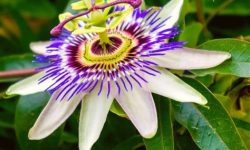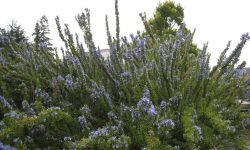Herbal Beauty: Natural Skincare and Haircare Products
Welcome to our blog, where we explore the wonderful world of herbal beauty products and skincare routines. Natural and organic beauty has gained immense popularity in recent years, and for good reason. In this post, we will delve into the many benefits of using herbal beauty products, as well as provide valuable tips on choosing the right herbal skincare routine for your specific needs. We will also uncover the top herbs that can help you achieve a glowing complexion and nourish your locks naturally. Join us as we uncover the power of herbs and explore the endless possibilities they offer in enhancing your beauty regimen.
The Benefits of Herbal Beauty Products
Herbal beauty products have gained popularity in recent years due to their numerous benefits for the skin and overall well-being. These products are made using natural plant extracts, which are known for their healing and nourishing properties. Unlike conventional beauty products, which often contain harsh chemicals and artificial ingredients, herbal beauty products offer a more natural and gentle approach to skincare.
One of the key benefits of using herbal beauty products is that they are gentler on the skin. Many conventional beauty products contain harsh chemicals that can cause irritation, dryness, and other adverse reactions. Herbal beauty products, on the other hand, are formulated using plant-based ingredients that are less likely to cause irritation or allergic reactions. This makes them suitable for individuals with sensitive skin or those who prefer a more natural approach to skincare.
Another benefit of herbal beauty products is that they are often packed with vitamins, antioxidants, and other nutrients that are beneficial for the skin. Different herbs contain different properties that can address various skin concerns such as acne, aging, dryness, and dullness. For example, herbs like aloe vera, chamomile, and lavender have soothing and calming properties, making them ideal for sensitive or inflamed skin. Rosehip, green tea, and turmeric are known for their antioxidant properties, which can help protect the skin against environmental damage and premature aging.
- Improved skin health and appearance.
- Gentle and suitable for sensitive skin.
- Natural plant extracts provide nourishment and hydration.
- Reduced risk of irritation and allergic reactions.
- Free from harsh chemicals and artificial ingredients.
- Potential to address various skin concerns.
- Environmentally friendly and sustainable.
| Herb | Properties | Skin Concerns |
|---|---|---|
| Aloe Vera | Soothing, hydrating | Inflammation, dryness |
| Chamomile | Calming, anti-inflammatory | Sensitivity, redness |
| Lavender | Relaxing, antiseptic | Acne, inflammation |
| Rosehip | Antioxidant, anti-aging | Wrinkles, fine lines |
| Green Tea | Antioxidant, detoxifying | Dullness, sun damage |
| Turmeric | Anti-inflammatory, brightening | Hyperpigmentation, acne scars |
In addition to their benefits for the skin, herbal beauty products are also more environmentally friendly and sustainable compared to their conventional counterparts. Many conventional beauty products contain chemicals and ingredients that can harm the environment during production and disposal. Herbal beauty products, on the other hand, are often made using organic and natural ingredients, reducing the overall environmental impact.
In conclusion, the benefits of herbal beauty products are numerous. From improved skin health to a gentle and natural approach, these products offer a viable alternative to conventional skincare. By choosing herbal beauty products, you not only take care of your skin but also contribute to a more sustainable beauty industry. So why not give them a try and experience the wonders of nature on your skin?
Choosing the Right Herbal Skincare Routine
When it comes to taking care of our skin, there are countless options available in the market. However, many individuals are now turning towards natural and herbal skincare routines, realizing the multitude of benefits they offer. Choosing the right herbal skincare routine can not only enhance the health of our skin but also minimize exposure to harsh chemicals and unnecessary additives. In this blog post, we will explore the various aspects of developing a personalized herbal skincare routine that suits your skin type and addresses your specific concerns.
One of the major advantages of using herbal skincare products is that they are specially formulated with natural ingredients extracted from plants, flowers, and herbs. These ingredients are rich in essential vitamins, minerals, and antioxidants that nourish and rejuvenate the skin without any adverse effects. They work in harmony with our skin, boosting its overall health and radiance. Herbal skincare routines are gentle yet effective, making them suitable for all skin types, including sensitive and acne-prone skin.
To choose the right herbal skincare routine, it is important to understand your unique skin type and concerns. Whether you have dry skin that lacks moisture or oily skin prone to breakouts, there are specific herbal ingredients that can address your needs. For instance, individuals with dry or sensitive skin can benefit from using herbal products containing soothing ingredients like chamomile, aloe vera, and lavender, which help hydrate and calm the skin. On the other hand, those with oily or acne-prone skin can opt for herbal products with ingredients like tea tree oil, witch hazel, and neem, known for their purifying and astringent properties.
Top Herbs for Glowing Skin
Having glowing and radiant skin is something that many people strive for. While there are numerous skincare products available in the market, one effective and natural way to achieve glowing skin is by incorporating herbal herbs into your skincare routine. These herbs are packed with beneficial properties that can nourish and rejuvenate your skin, giving you that healthy and luminous glow.
One of the top herbs for glowing skin is rosemary. This herb is known for its antioxidant properties, which can help protect your skin from free radicals and prevent premature aging. Rosemary also has anti-inflammatory benefits, making it suitable for those with sensitive or acne-prone skin. You can incorporate rosemary into your skincare routine by using it in DIY face masks or by using skincare products that contain rosemary extract.
Lavender is another herb that is highly beneficial for achieving glowing skin. It has soothing and calming properties, making it perfect for those with dry or irritated skin. Lavender also has antiseptic properties, which can help cleanse and detoxify your skin. You can use lavender essential oil as a natural toner or add dried lavender flowers to your bathwater for a relaxing and rejuvenating experience.
Chamomile is well-known for its calming and soothing properties, making it a great herb for sensitive or inflamed skin. It can help reduce redness and irritation, giving your skin a more even tone. Chamomile also has anti-inflammatory benefits, which can help soothe acne or eczema-prone skin. You can incorporate chamomile into your skincare routine by using it in a facial steam or by using products that contain chamomile extract.
- Rosemary
- Lavender
- Chamomile
| Herb | Beneficial Properties |
|---|---|
| Rosemary | Antioxidant, anti-inflammatory |
| Lavender | Soothing, calming, antiseptic |
| Chamomile | Calming, anti-inflammatory |
Herbal Haircare: Nourishing Your Locks Naturally
When it comes to haircare, many of us are turning to herbal remedies to nourish and strengthen our locks naturally. Herbal haircare has been used for centuries and offers a multitude of benefits. From promoting hair growth to reducing dandruff, these natural ingredients can help improve the overall health and appearance of your hair. In this blog post, we will explore the various herbal remedies that can be incorporated into your haircare routine for naturally beautiful and healthy locks.
First and foremost, it is important to understand the benefits of using herbal products for your hair. Unlike commercial haircare products, which often contain harsh chemicals and synthetic ingredients, herbal haircare products are made from natural plant extracts. These extracts are rich in vitamins, minerals, and antioxidants that can nourish and protect your hair from damage.
One of the top herbs for promoting healthy hair is rosemary. Rosemary has been used for centuries to stimulate hair growth and prevent hair loss. It improves blood circulation to the scalp, which helps promote the delivery of nutrients to the hair follicles. Additionally, rosemary has antimicrobial properties that can effectively treat dandruff and scalp irritations, leaving your hair clean and healthy.
- Aloe vera is another powerful herb that can benefit your hair. It has soothing and moisturizing properties that can help relieve scalp dryness and itchiness. Aloe vera also contains enzymes that promote healthy hair growth and prevent hair breakage.
- Lavender is not only known for its calming scent but also for its hair-nourishing properties. It can balance oil production in the scalp, making it an excellent herb for those with oily hair. Lavender also has antimicrobial properties that can help prevent scalp infections.
- Hibiscus is a popular herb that can strengthen hair, prevent split ends, and boost shine. It is rich in vitamins and antioxidants that nourish the hair follicles and stimulate hair growth. Hibiscus also acts as a natural conditioner, making your hair smoother and more manageable.
Incorporating these herbs into your haircare routine can be as simple as brewing them into a herbal infusion or using them in homemade hair masks. You can also find herbal haircare products, such as shampoos, conditioners, and hair oils that contain these beneficial ingredients.
| Herb | Main Benefits |
|---|---|
| Rosemary | Stimulates hair growth, prevents hair loss, and treats dandruff. |
| Aloe vera | Soothes scalp, moisturizes hair, and promotes healthy hair growth. |
| Lavender | Balances oil production, prevents scalp infections. |
| Hibiscus | Strengthens hair, prevents split ends, and enhances shine. |
Transitioning to herbal haircare can be a beneficial step towards achieving naturally beautiful and healthy locks. However, it is important to note that results may vary for each individual. It is advisable to perform a patch test before using any new herbal products and to consult a professional if you have any specific concerns or conditions related to your hair or scalp.
DIY Herbal Face Masks for a Radiant Complexion
Having a radiant complexion is a desired trait for many individuals. While there are various skincare products available in the market, it’s always beneficial to opt for natural and herbal alternatives. Herbal face masks are one such option that can effectively improve your skin’s appearance and give you a glowing complexion. The best part is that you can easily create these masks at home using simple ingredients from your kitchen or garden.
Why Opt for DIY Herbal Face Masks?
When it comes to skincare, the benefits of herbal face masks are numerous. Unlike commercial products that often contain harsh chemicals, DIY herbal face masks are gentle on the skin and free from any potential irritants. These masks are made from natural ingredients that you can trust, such as herbs, fruits, and oils. Plus, they can be tailored to suit your specific skin type and concerns.
The Top Herbs for Face Masks
| Herb | Benefit |
|---|---|
| 1. Turmeric | Reduces inflammation, brightens skin tone |
| 2. Aloe Vera | Hydrates, soothes irritation |
| 3. Rosemary | Tightens pores, improves circulation |
| 4. Lavender | Calms skin, promotes relaxation |
| 5. Green Tea | Antioxidant-rich, reduces signs of aging |
DIY Recipes for Herbal Face Masks
- 1. Turmeric and Yogurt Mask: Mix 1 teaspoon of turmeric powder with 2 tablespoons of plain yogurt. Apply to the face and leave it on for 15 minutes before rinsing off. This mask will leave your skin with a natural glow.
- 2. Aloe Vera and Cucumber Mask: Blend half a cucumber with 2 tablespoons of fresh aloe vera gel. Apply the mixture to your face and let it sit for 20 minutes. Rinse off for a refreshing and hydrating effect.
- 3. Rosemary and Honey Mask: Combine 1 tablespoon of dried rosemary with 1 tablespoon of raw honey. Apply to the face and leave it on for 10-15 minutes. This mask will help tighten your pores and improve blood circulation.
- 4. Lavender and Oatmeal Mask: Grind 2 tablespoons of oatmeal and mix it with a few drops of lavender essential oil. Add enough water to form a paste. Apply the mask for 20 minutes and enjoy the soothing benefits of lavender.
- 5. Green Tea and Lemon Mask: Brew a cup of green tea and let it cool. Squeeze the juice of half a lemon into the tea and mix well. Apply the mask to your face and leave it on for 15 minutes. This rejuvenating mask will revive dull skin.
By incorporating DIY herbal face masks into your skincare routine, you can attain a radiant complexion while also enjoying the benefits of natural ingredients. So, next time you’re looking for a pampering session, head to your kitchen and whip up one of these nourishing masks for a spa-like experience at home.
Healing Herbs for Common Skin Issues
When it comes to skincare, many of us are looking for natural and effective solutions to our common skin issues. That’s where healing herbs come in. These powerful plants have been used for centuries for their medicinal properties, and they can work wonders for our skin. Whether you’re dealing with acne, dryness, or irritation, incorporating healing herbs into your skincare routine can help alleviate these common skin issues.
One of the most well-known healing herbs for skin issues is tea tree oil. This essential oil has antimicrobial properties, which means it can help kill bacteria and reduce acne breakouts. To use tea tree oil, simply dilute a few drops in a carrier oil, such as jojoba or coconut oil, and apply it to affected areas. Another popular herb for acne-prone skin is witch hazel. This natural astringent can help control oil production and reduce inflammation.
In addition to acne, many people also struggle with dry and irritated skin. Aloe vera is a fantastic herb for soothing and hydrating the skin. Its gel-like substance is packed with vitamins and antioxidants that can promote healing and moisturization. You can apply aloe vera gel directly to dry patches or add it to your favorite homemade skincare recipes. Another herb that works wonders for dry skin is calendula. Calendula has anti-inflammatory properties and can help soothe itching and irritation.
Incorporating healing herbs into your skincare routine can go a long way in addressing common skin issues. If you’re dealing with acne, tea tree oil and witch hazel can help reduce breakouts and control oil production. For dry and irritated skin, aloe vera and calendula can provide soothing relief and hydration. These natural remedies offer an alternative to harsh chemicals and can be a gentle yet effective solution for your skincare needs. Say goodbye to common skin issues and hello to healthier, happier skin with the power of healing herbs.
- Tea tree oil: Known for its antimicrobial properties and ability to reduce acne breakouts.
- Witch hazel: A natural astringent that controls oil production and reduces inflammation.
- Aloe vera: Soothes and hydrates the skin, promoting healing and moisturization.
- Calendula: Anti-inflammatory herb that soothes dry skin, itching, and irritation.
| Herb | Main Benefits |
|---|---|
| Tea tree oil | Antimicrobial properties, reduces acne breakouts |
| Witch hazel | Controls oil production, reduces inflammation |
| Aloe vera | Soothes and hydrates the skin, promotes healing |
| Calendula | Soothes dry skin, itching, and irritation |
Transitioning to Herbal Beauty: Dos and Don’ts
Transitioning to herbal beauty products can be a wonderful and rewarding journey for both your skin and overall well-being. However, it’s important to approach this transition with caution and awareness. To ensure a smooth and successful transition, here are some essential dos and don’ts to keep in mind:
DO:
- Research and understand the benefits of herbal beauty products.
- Start by incorporating one herbal product at a time into your skincare routine.
- Consult with a skincare professional or herbalist to determine the best products for your specific skin concerns.
- Always perform a patch test before applying a new herbal product to your face or body.
- Be patient and give your skin time to adjust to the new natural ingredients.
- Stay consistent with your herbal skincare routine to experience long-term benefits.
DON’T:
- Overwhelm your skin by introducing multiple herbal products all at once.
- Assume that all herbal ingredients are suitable for your skin type or condition.
- Discontinue any prescribed medications without consulting with a healthcare professional.
- Forget to read the labels and educate yourself on the specific herbs used in the products you’re using.
- Expect instant results – herbal skincare is a gradual process that requires consistent use and patience.
- Ignore any allergic reactions or adverse effects; discontinue use if necessary and seek professional advice.
By following these dos and don’ts, you’ll be well on your way to transitioning smoothly and effectively to herbal beauty products. Embracing a natural and holistic approach to skincare can have numerous benefits, including reduced exposure to potentially harmful chemicals and a closer connection to the healing power of plants. So go ahead, take the plunge, and unlock the potential of herbal beauty for a healthier and more radiant you!
Frequently Asked Questions
What are the benefits of herbal beauty products?
Herbal beauty products offer a range of benefits, including natural ingredients that are gentle on the skin, free from harsh chemicals, and often have healing properties. They can nourish the skin, promote a healthy complexion, and provide anti-inflammatory and antioxidant benefits.
How can I choose the right herbal skincare routine?
Choosing the right herbal skincare routine involves understanding your skin type and its specific needs. Consider factors such as hydration, exfoliation, and protection from the sun. Look for products that contain herbal ingredients suitable for your skin type and address your skin concerns.
What are the top herbs for glowing skin?
Some of the top herbs for glowing skin include rosemary, chamomile, aloe vera, turmeric, and lavender. These herbs have skin-nourishing and rejuvenating properties that can help enhance your skin’s natural radiance.
How can herbal haircare nourish my locks naturally?
Herbal haircare products, such as shampoos, conditioners, and oils, contain ingredients like amla, hibiscus, neem, and fenugreek, which nourish the hair follicles, promote hair growth, reduce hair fall, and improve overall hair health. They offer a natural alternative to synthetic hair products.
What are some DIY herbal face masks for a radiant complexion?
There are several DIY herbal face masks you can try for a radiant complexion. Some popular options include a turmeric and yogurt mask for brightening, a honey and aloe vera mask for hydration, and a green tea and cucumber mask for soothing and refreshing the skin.
What are some healing herbs for common skin issues?
For common skin issues like acne, eczema, or dry skin, certain herbs can provide relief and healing. Tea tree oil is known for its antibacterial properties and can help with acne. Calendula is soothing for eczema, while chamomile can calm and moisturize dry skin.
What are some dos and don’ts for transitioning to herbal beauty?
When transitioning to herbal beauty, do research and understand the herbs and their benefits for your skin and hair. Start with one product at a time and give your skin time to adjust. Don’t expect immediate results and be patient. Avoid using herbal products if you have any allergies to specific herbs.



